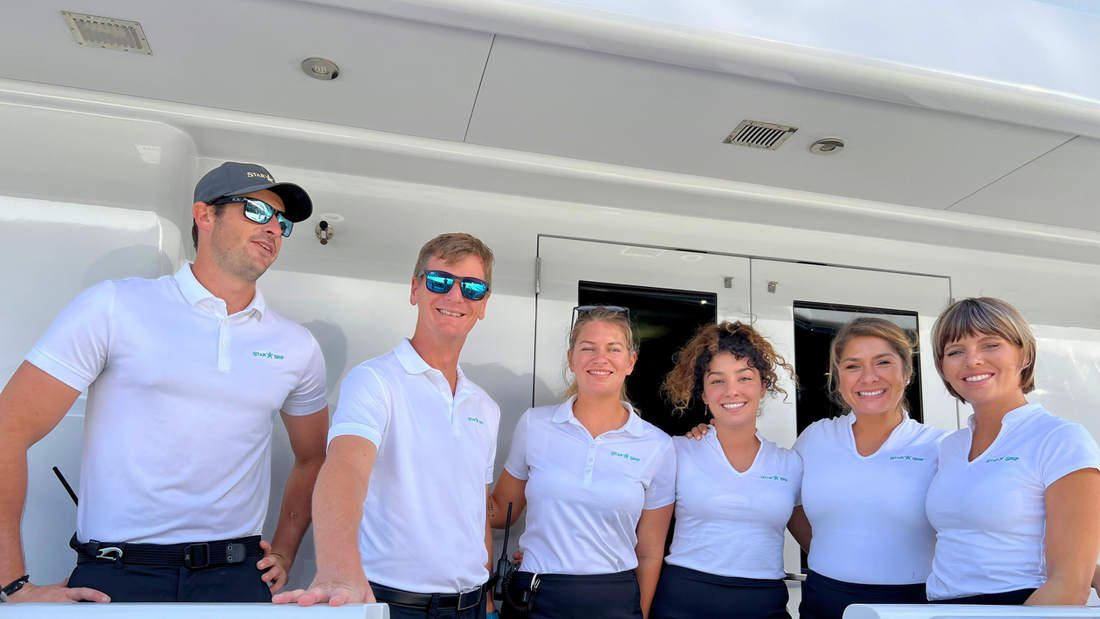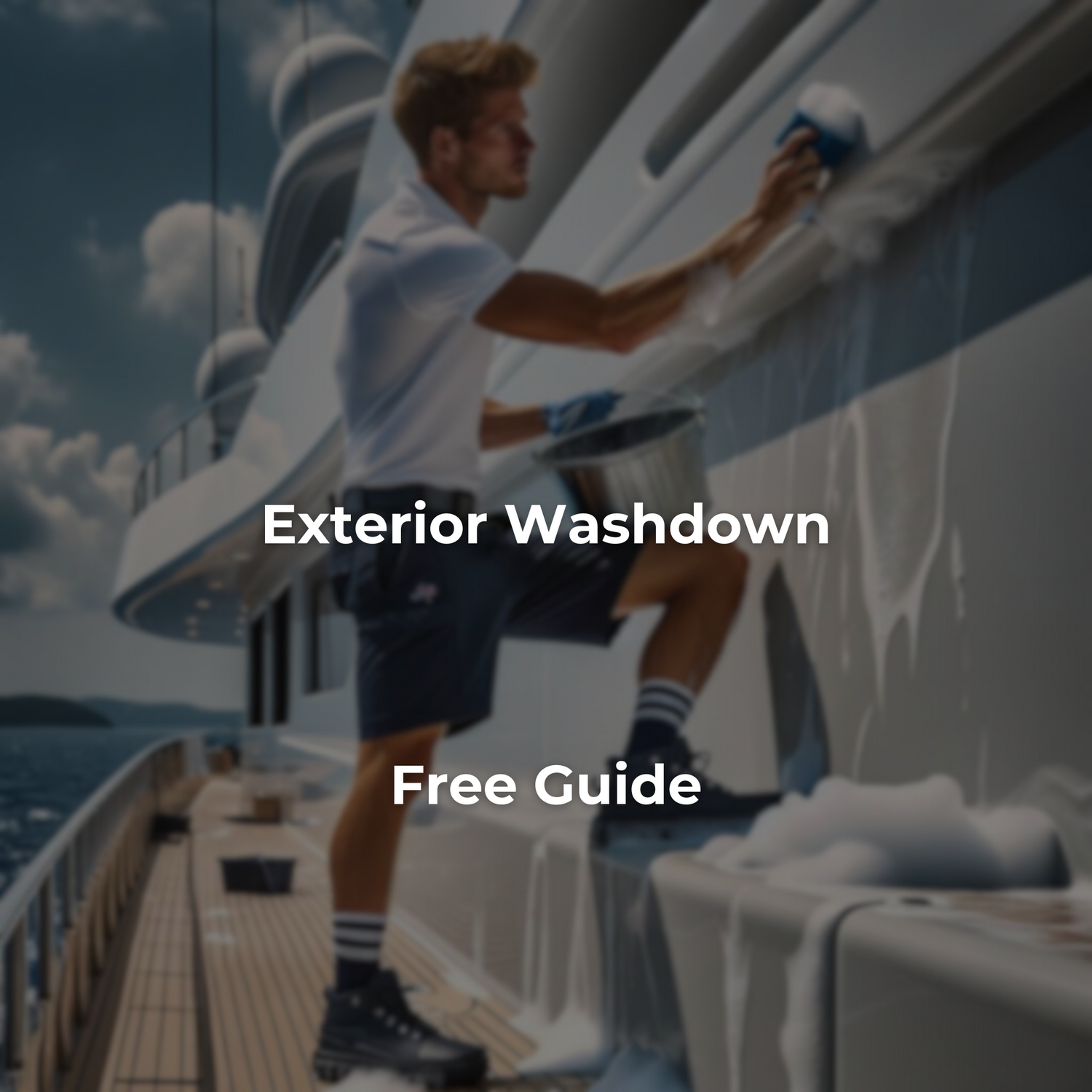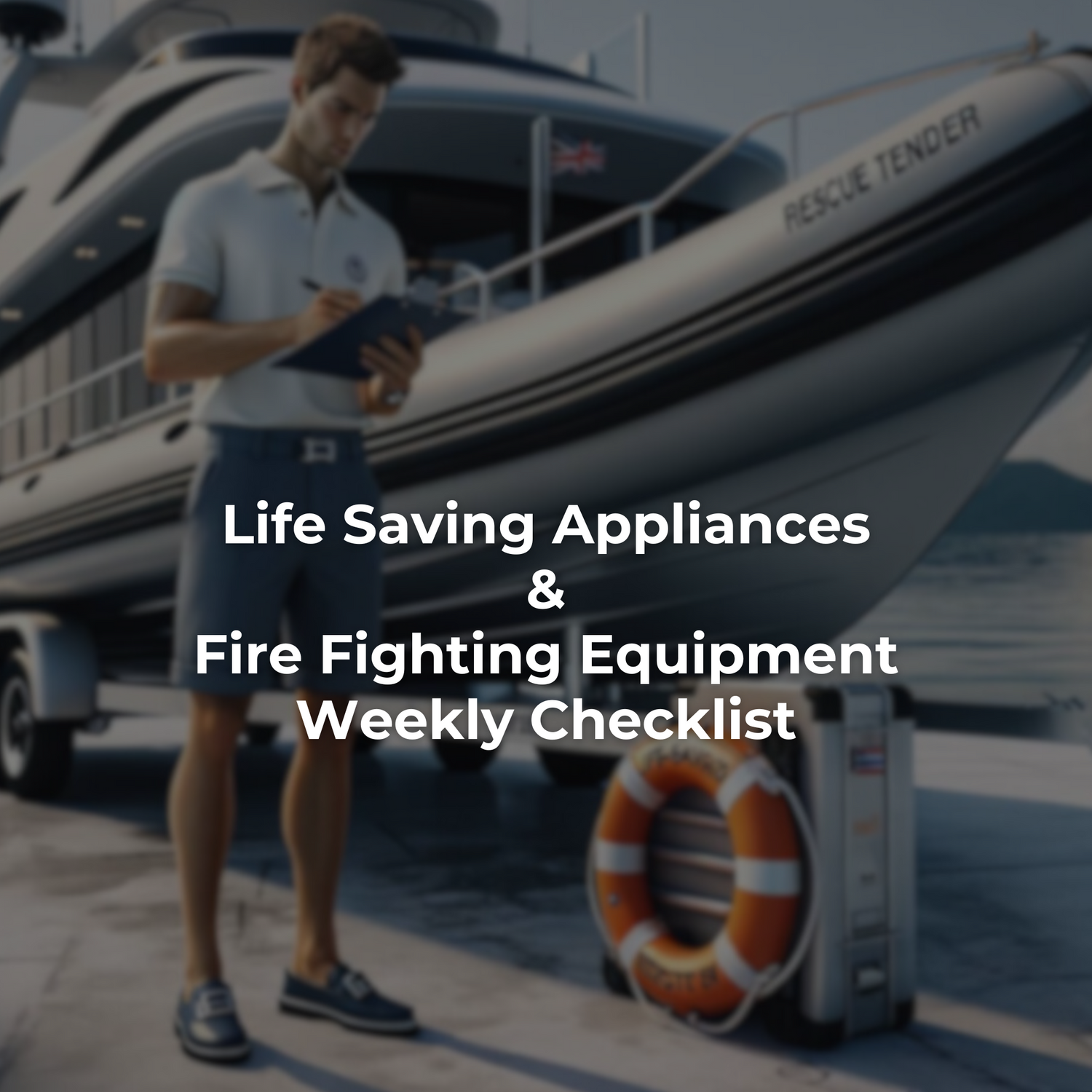In this enlightening interview with Nicola Morgan, Director of Wilsonhalligan Large Yacht Recruitment, we delve into the valuable skills and unique experiences that yachting professionals bring to land-based roles. Nicola shares her in-depth knowledge on how the rigorous standards, teamwork, and client relations honed on luxury yachts can significantly benefit a variety of industries ashore. Whether discussing the smooth translation of sea-based skills into corporate language or exploring the common pathways and potential challenges ex-yachties face ashore, Nicola's insights aim to empower seafarers seeking to navigate their careers beyond the sea.

Q & A WITH NICOLA MORGAN, WILSONHALLIGAN
Q: What skills and experiences from my yachting career are most valuable to land-based employers, especially within the yachting sector?
A: I think if we were being specific, then this would very much depend on which area of work the candidate has come from or is looking to move into. However, there are experiences from yachting which I think are extremely valuable for employers more generally.
Crew from yachts are used to working under extreme pressure, at very high standards and certainly from the ex-yacht crew we have taken on at Wilson Halligan, we have seen this attention to detail transfer to office life. I also feel that living and working so closely with other crew, often for months at a time, sets someone up very well to liaise with others at work ashore – even if someone isn’t seeing eye to eye with a work colleague, it’s a lot easier to deal with being able to return home at the end of the day!
Transitioning from roles as ex-yachties to shoreside positions also often involves working with UHNW (Ultra High Net Worth) clients. This experience fosters confidence, especially when dealing with companies catering to this calibre of clientele or serving HNW principals in private households.
Q: How can I effectively translate my seafaring experience into language that resonates with land-based industries and businesses?
A: This can indeed sometimes be tricky – I certainly found it hard when I moved ashore to help prospective employers understand certain nuances or language that best described what I had been doing whilst working at sea. I would say, spend time researching potential shoreside positions that you might be interested in and read job adverts or any job descriptions available – think about the language being used, how it could be translated into your seafaring experience and work backwards from there.
When yachties come ashore, we start by asking about their favourite aspects of yachting and their envisioned career path. Understanding this guides them in articulating their experiences effectively for their desired shore-based roles.
Q: Are there specific roles within the yachting industry that are more suitable for someone transitioning from sea to land?
A: Although we see crew move into a wide variety of roles when transitioning ashore, we do see some common trends, such as interior crew who move across to work within private households or estates. We also see many crew who move ashore and start working within a yacht management company or brokerage house – again, this could be in a variety of roles, depending on the individual’s background. For example, an experienced charter captain may be appealing to a charter house, due to the contacts they have built up, or an engineer may easily move into a position as Technical Manager.
Q: What are the most common challenges faced by seafarers transitioning to land-based careers, and how can I overcome them?
A: Transitioning to life and work ashore is a huge adjustment and although it is an exciting time, it can bring various challenges. One of the most common issues from a practical point of view is the change to personal finances. Yachting is generally very well paid, and often even the very well paid positions ashore do not compete, especially when looking for that first land-based role. There are also the added costs of living ashore, which can come as a bit of shock for someone who is not used to it!
To overcome this, it’s a case of prepare, prepare, prepare. If you have the luxury of time on your side to plan a move ashore, do as much research as you can regarding rough salaries you might expect in your preferred area and also ensure you are putting money aside monthly to build up a decent savings pot to move ashore with.
Q: How should I approach networking in the yachting industry or other sectors on land to find job opportunities?
A: Again, spend time researching and preparing for upcoming events or networking opportunities. These days, networking can be online as well as in person. Think about Linkedin as well as industry online webinars or conferences. Ask those you are connected to if they can recommend any events and if you do attend any, be sure to always maintain the highest level of professionalism. You never know who you might bump into.
Q: What additional qualifications or certifications might I need to improve my employability on land?
A: Again, have a look at job adverts for land-based positions and look at what qualifications or skills are being requested. Are there qualifications that you can study long distance for? If not, make time in your leave to undertake courses. Some general skills can always be helpful, especially for an office environment, such as Microsoft Office (Excel, Word etc.,) – you may not have needed these in recent years, think about a refresh.
Q: Can you recommend any courses or training programs that focus on skills development for ex-seafarers looking to transition?
A: Consider courses that are beneficial depending on specific job requirements. For instance, some management companies may demand DPA or CSO qualifications, although this criterion varies across companies. It could also be worth looking at Maritime Training Academy as they offer lots of different courses which could be beneficial to moving ashore.
Q: What are the best strategies for job searching and application in the land-based sector?
A: As is the case when searching for a yacht job, have an organised and proactive approach. Before applying for anything, make sure your CV is tailored to the land-based sector (if you need help with this, recruiters such as our very own Maria Parry should be able to offer you advise at no cost. Speaking of recruiters, develop a relationship with a few key people who you feel can best represent you in your job search – they should make time to get to know you and what you are looking for during this exciting (if daunting!) time.
Keep a list of who you are registered with and check in with your chosen few every few weeks or so, so that you stay in their mind. It’s also wise to keep your own log of positions you apply for (whether yourself or through an agency), so you can keep track of where you need to follow up.
Q: How can I mentally prepare for the change in lifestyle and work culture when moving from sea to land?
A: A while back I interviewed a prospective recruiter who was in the process of transitioning ashore and since leaving his last yacht a few months prior, he set himself a very clear routine for each day / week. Monday to Friday he would treat as ‘workdays’ and after an early morning gym session, would set himself up with his laptop at the kitchen table to start his ‘work’ of finding a job. I really liked this approach and he felt it was mentally preparing him for a new office type routine.
I would also recommend speaking to others who have made the move, there is such value in gaining an honest account from those who have experienced the transition ashore and just being aware of what differences / challenges might arise, so that the change isn’t then too much of a shock.
Q: Are there specific industries or sectors outside of yachting where my skills would be particularly in demand?
A: Again, depending on which department a crew member has come from on board, there can be some industries which would be particularly interested in a yachting background. The most obvious on the interior side would be a move to a different type of hospitality work – this could be a high-end hotel or restaurant or we have even seen ex yachties set up their own cafes, cookery schools, floristry businesses etc.
We find that a lot of crew actually want to stay within yachting as they simply love the industry, but we have seen plenty of crew make a complete change and go into things like property, finance, teaching or psychology.
Q: What steps should I take to start my own business, and how can my background in the yachting industry be an asset in entrepreneurship?
A: Starting a business is no mean feat, and once again I would say spend valuable time planning the business before making the leap. If you are still on board, use free time wisely to read books, listen to relevant podcasts, speak to other entrepreneurs and think about the logistics – all the boring things like taxes (!) and incorporating the company etc.,
We have seen many crew move ashore and start very successful businesses. There are some key attributes I feel that yachties bring to the table, such as a very strong work ethic, adaptability and resourcefulness. Also, the ability to work under extreme pressure (whilst still smiling!) can be very useful when running a business.
Q: How can I use social media and online platforms to enhance my visibility and appeal to potential employers or business partners?
A: This is quite a big topic and could most likely be a blog in itself! I will be honest, I don’t see myself as a social media expert, but can absolutely see the value social media brings to a business and I do try to use it as much as I can. Without going too much into detail I would say be true to yourself online, tell your story and always remember to be professional – I would never say something online that I wouldn’t be prepared to say to someone in person as you never know who may see your post.
Q: What resources are available for ex-seafarers in terms of career counseling and job placement services?
A: Without wanting to sell our own services (!) we have our own shoreside recruiter, Maria, who speaks daily to crew looking to make the move ashore – sometimes this is way in advance of them making the move, but I can see such value it brings to crew to have someone to share career ideas with. I found this area incredibly lacking when I moved ashore and would have absolutely loved to have had someone like Maria to chat to. It is a lot of the reason why we officially started this area of our business.
I have also recently become involved in the Marine Society’s Coming Ashore programme, where I am a mentor to seafarers considering a move ashore. This is a fantastic service available to seafarers, who can receive mentoring from a wide variety of mentors, making the most of their network and advice etc. Again something I wish had been available when I was transitioning ashore.
Q: How do I address gaps in my CV due to long periods at sea, particularly in a way that is appealing to land-based employers?
I wouldn’t have periods at sea as gaps on a CV – whilst it is true that some land based employers don’t necessarily understand yachting and you may be wise not to detail each yacht separately (especially if you have been on yachts for a long while), find a way to describe more generally the industry and your role within it and the length of time spent overall at sea.
Q: What are the key differences in work-life balance between sea-based roles and land-based positions, and how can I adapt to these changes?
I personally found the work-life balance incredible ashore, even when running a business (and I still do). I still try not to take it for granted. However, this is mainly because towards the end of my career at sea I noticed my priorities start to change – I wanted to be around for family birthdays / weddings etc., which earlier in my career hadn’t fazed me as much. I was also desperate for a dog (!) and wanted to plan my free time more. This was however before rotation was as common, it is fantastic to see more crew be able to enjoy more of a work / life balance whilst still working on yachts and I do think it’s encouraged crew to stay longer in their sea-going career.
Q: How can I effectively communicate the leadership and teamwork skills gained at sea to potential employers on land?
A: I would start by making a list of the leadership skills you feel that you have gained whilst working at sea and then try to use language that would be easily understood by land-based employers when including this on your CV. Perhaps then think about specific situations where you have demonstrated your leadership and teamwork and be confident in talking about these with recruiters or prospective employers.
Q: What are the legal and administrative challenges I might face in establishing a business, and where can I find guidance on these issues?
A: This would very much depend on which country you would be looking to set up in, legalities can vary hugely and it’s always best to make sure you fully understand your liabilities and any administration required before officially starting the business. In the UK I have always been surprised at how much free business help is on hand, I often see local events or networking opportunities being held, it just requires some online research to find out what is available.
Q: How do I maintain my sea-going certifications and skills while working on land, in case I decide to return to sea-based roles in the future?
A: This can certainly be a tricky situation and they cannot always be maintained; it very much depends on the land-based role you go into. Here in the UK, the MCA will allow you to maintain your certification in certain circumstances, if it is particularly relevant to your land based job for example, but again it’s always worth researching this beforehand so you don’t face any surprises later down the line.
Q: Can you share success stories of former seafarers who have made a successful transition to land-based roles or entrepreneurship?
A: Where to start?! Firstly, within our own team – we have been lucky enough to have worked with several ex-yachties, many of whom have started their land based careers with us at WH. Some are still with us and others have gone on to do more incredible things. We are very aware of the adjustment it can take when moving ashore and as such do our very best to help support them with this transition.
Since starting the shoreside part of Wilsonhalligan, we have also been very fortunate to have worked with a great deal of candidates who we have been able to help directly (or indirectly) make this exciting career move. I feel very privileged to work with these candidates and even if we don’t place them ourselves it is amazing to see where life takes them after yachting – sometimes places that they never even knew was possible. I for one never in a million years thought I would be sitting in the seat I am today and have no doubt that I have my yachting career to thank for this.
Wilsonhalligan offers recruitment, not only for yachts, but also for private households and shoreside positions. They welcome applications for all positions on board, and are equally open to applicants from commercial and naval vessels.
follow them on LINKEDIN and visit their website.




